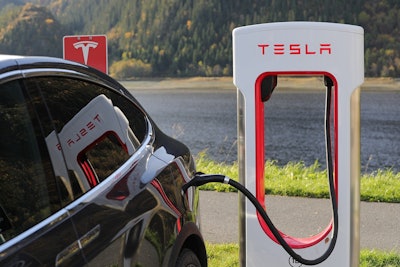
San Francisco, California -- The right-to-repair movement suffered a setback last week when a lawsuit brought by a group of Tesla owners was dismissed by a California judge.
In 2023, the owners sued the OEM, claiming that in order to maintain and repair their vehicles they were “forced to pay supracompetitive prices and suffer exorbitant wait times.”
Virginia M. Lambrix filed the lawsuit against Tesla on March 14, 2023, which was later consolidated with four related lawsuits, all claiming that Tesla Electric Vehicles can only be maintained by Tesla-Approved Collision Centres. These centres are independently owned but are required to rely on Tesla for Tesla-Compatible Parts and pricing. Tesla owners must also use the Tesla app to schedule service with Tesla.
The right to repair movement declares that consumers have the right to repair the products they own. In response to auto parts manufacturers having a monopoly over repair information, the right to repair movement argues that consumers are free to choose where and how their vehicles are repaired.
Vehicle owners cannot use independent service providers nor repair their vehicles themselves because of Tesla’s warranties which deem “improper maintenance, service or repairs” as a reason for coverage to be excluded and warranties to be made void. Tesla-Compatible Parts are difficult to purchase because of restricted availability, as some purchasers are required to provide proof of vehicle ownership and a vehicle identification number and Tesla “has exclusive possession of a tool that is necessary to code and activate certain Tesla parts.”
U.S. District Judge Trina L. Thompson denied six of the eight claims made by the plaintiffs, granting Tesla’s motion to dismiss with prejudice, closing the case permanently and barring the same plaintiffs from bringing the same claim back to court against Tesla.
While the court found that the plaintiffs have “plausibly alleged a cause of action for monopolization and unlawful tying,” claims one through five and seven were denied, and the court further denied claim six “to the extent it relies on EVs or Tesla-Compatible Parts as a tying product.”







